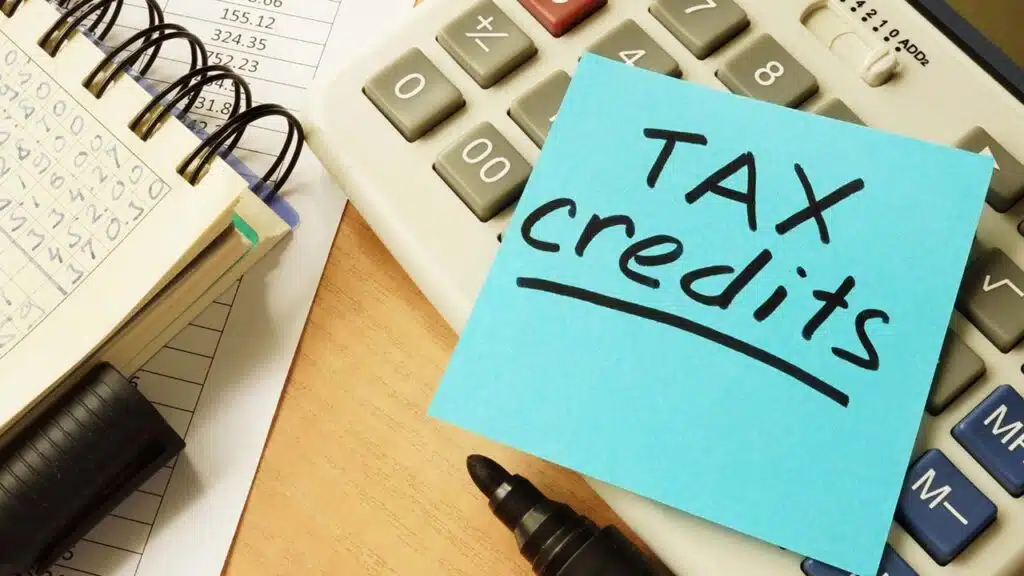Taxes are a part of life, but making mistakes on your tax return can be costly. Whether it’s missing deductions, filing late, or misunderstanding tax laws, these errors could result in lost savings or even penalties.
For Canadians, the tax system offers numerous benefits, credits, and deductions that can significantly lower your tax bill, but only if you know how to take full advantage of them.
This article explores 10 common tax mistakes that could be costing you thousands and offers practical advice to help you avoid them. By understanding these pitfalls, you can ensure you maximize your tax savings and stay compliant with the Canada Revenue Agency (CRA).
Why Avoiding Tax Mistakes Is Crucial
Tax mistakes can lead to:
- Financial Losses: Missing out on deductions or credits directly impacts your wallet.
- Penalties: Errors can attract CRA penalties or audits.
- Stress: Resolving tax issues takes time and effort that could be avoided with proper preparation.
Understanding the tax system and planning your return carefully is essential to avoid unnecessary costs.
1. Failing to Claim All Eligible Tax Deductions
Many Canadians miss out on significant tax savings simply because they don’t claim all the deductions they’re entitled to.
The CRA allows individuals to deduct certain expenses incurred throughout the year, which directly reduce taxable income. These deductions include moving expenses, medical costs, and professional fees.
For example, if you moved for work or education and incurred expenses such as moving trucks or temporary accommodations, these costs might be deductible.
Similarly, self-employed individuals can deduct home office expenses, vehicle costs, and business-related utilities. Missing these deductions means you’re paying more tax than necessary.
How to Avoid:
- Maintain detailed records and receipts of all deductible expenses.
- Review the CRA’s list of allowable deductions annually.
- Consult with a tax professional to identify deductions specific to your situation.
| Common Deduction | Eligibility |
| Moving Expenses | Relocation for work or education (40km+ move) |
| Medical Expenses | Uncovered health costs exceeding 3% of income |
| Home Office Expenses | Proportional to workspace use for self-employment |
2. Not Taking Advantage of Tax Credits
Tax credits directly reduce the amount of tax you owe and can save you thousands of dollars annually. Yet, many Canadians either don’t know about these credits or fail to claim them.
Credits like the Canada Child Benefit (CCB), Disability Tax Credit (DTC), and the Home Accessibility Tax Credit (HATC) are often overlooked.
For instance, the DTC can save eligible individuals thousands of dollars annually, but it requires certification by a medical professional. Similarly, first-time homebuyers can claim the First-Time Home Buyers’ Tax Credit (HBTC), which provides financial relief for new homeowners.
How to Avoid:
- Review available tax credits on the CRA website.
- Ensure you meet the eligibility criteria and provide required documentation.
- Use tax software to identify and claim all applicable credits.
| Tax Credit | Eligibility |
| Disability Tax Credit (DTC) | Certified physical or mental impairment |
| First-Time Home Buyers’ Credit | Purchased first home in the tax year |
| Canada Child Benefit (CCB) | Parents of children under 18 years |
3. Missing Tax Deadlines
Filing your taxes late can result in penalties, interest charges, and unnecessary stress. The CRA imposes a penalty of 5% of your balance owing for late filings, plus an additional 1% for every month the return is overdue. Missing deadlines also delays refunds, which could help you financially.
For self-employed individuals, the deadline to file is extended to June 15, but any balance owing must be paid by April 30. Understanding and adhering to these deadlines is crucial for avoiding penalties.
How to Avoid:
- Mark important tax deadlines on your calendar or set reminders.
- Use CRA’s My Account to track payments and file online.
- If you anticipate delays, apply for a filing extension.
| Taxpayer Type | Filing Deadline |
| Individuals | April 30 |
| Self-Employed | June 15 (balance owing by April 30) |
| Businesses | Varies depending on fiscal year-end |
4. Underreporting Income
Failing to report all sources of income is a common mistake that can lead to CRA audits, penalties, and fines. Income from part-time jobs, freelance work, rental properties, or investments must be included in your return.
The CRA uses third-party information, like employer records and bank statements, to verify income.
Neglecting to report income can result in penalties of up to 20% of the unreported amount. To stay compliant, ensure you document all income sources accurately and cross-check against CRA records.
How to Avoid:
- Maintain organized records of all income sources, including gig economy earnings.
- Use CRA’s auto-fill feature to prepopulate income information.
- Consult a professional if you have complex income streams.
| Income Source | Common Oversights |
| Freelance Work | Not invoicing or tracking income |
| Rental Income | Forgetting to report shared property earnings |
| Investments | Ignoring capital gains from stock sales |
5. Overlooking Retirement Savings Options
Registered Retirement Savings Plans (RRSPs) and Tax-Free Savings Accounts (TFSAs) are powerful tools for reducing your tax burden and saving for the future. Many Canadians, however, fail to maximize their contributions, missing out on significant tax benefits.
RRSP contributions reduce taxable income for the year, while TFSAs allow tax-free growth on investments. Ignoring these accounts not only reduces your tax efficiency but also impacts your long-term savings goals.
How to Avoid:
- Contribute to RRSPs before the annual deadline (usually March 1).
- Use CRA tools to track contribution room for RRSPs and TFSAs.
- Work with a financial advisor to optimize savings strategies.
| Savings Account | Tax Benefit |
| RRSP | Reduces taxable income |
| TFSA | Tax-free growth on investments |
| RESP | Grants for children’s education savings |
6. Ignoring Proper Record-Keeping
Proper record-keeping is essential for filing accurate tax returns and claiming eligible deductions. However, many Canadians fail to organize or retain important financial documents, leading to missed deductions or errors on their tax returns.
The CRA requires supporting documentation for all claims, including receipts, invoices, and financial statements. Without these records, taxpayers risk having their deductions denied during audits.
For instance, self-employed individuals must maintain records of business expenses, while landlords need detailed accounts of rental income and property-related costs. Ignoring proper record-keeping can lead to penalties, interest charges, and even disqualification from certain tax benefits.
How to Avoid:
- Use digital tools like accounting software or apps to organize records.
- Keep receipts for at least six years, as required by the CRA.
- Regularly update records to avoid last-minute scrambling during tax season.
| Document Type | Retention Period |
| Receipts and Invoices | Minimum six years |
| Investment Statements | Until relevant tax year is closed |
| Business Expense Records | Minimum six years |
7. Misunderstanding Tax Brackets
Canada’s progressive tax system means that income is taxed in brackets, with higher income levels subject to higher tax rates. Many Canadians misunderstand this concept, leading them to believe that earning more income will push their entire earnings into a higher tax bracket.
This misunderstanding often discourages people from pursuing raises, bonuses, or additional income streams.
In reality, only the income exceeding a specific bracket is taxed at the higher rate, not the entire income. Properly understanding tax brackets can help taxpayers strategize their earnings and deductions more effectively, maximizing after-tax income.
How to Avoid:
- Use online tax calculators to estimate taxes owed at different income levels.
- Plan income and deductions to optimize tax brackets.
- Consult with a tax advisor to understand how to structure income streams.
|
Taxable Income Range |
Federal Tax Rate (2023) |
| Up to $53,359 | 15% |
| $53,359 to $106,717 | 20.5% |
| $106,717 to $165,430 | 26% |
8. Overusing Tax Shelters
Tax shelters like RRSPs and TFSAs are excellent tools for minimizing taxes, but overusing them or misunderstanding their rules can lead to costly penalties.
For example, over-contributing to an RRSP beyond the allowable limit incurs a penalty of 1% per month on the excess amount. Similarly, contributing to a TFSA beyond the limit results in similar penalties.
Some Canadians also misuse aggressive tax shelters that promise unrealistic deductions or tax savings. The CRA monitors these activities closely, and taxpayers could face audits, penalties, or legal consequences for using such schemes.
How to Avoid:
- Track contribution limits for RRSPs and TFSAs annually.
- Avoid overly aggressive tax-saving schemes.
- Use CRA tools like My Account to monitor contribution room.
| Tax Shelter | Benefit |
| RRSP | Reduces taxable income |
| TFSA | Tax-free investment growth |
| RESP | Government grants for education savings |
9. Failing to Claim Spousal and Family Deductions
Many Canadians fail to take advantage of spousal and family-related tax deductions and credits, missing opportunities to lower their overall tax burden. For instance, if one spouse earns significantly less than the other, the higher-earning spouse can claim spousal credits or transfer unused deductions.
Other commonly overlooked benefits include the Canada Caregiver Credit (for supporting dependents with a disability) and child care expense deductions.
These deductions and credits are designed to ease the financial burden on families, yet many remain unclaimed due to a lack of awareness.
How to Avoid:
- Review CRA guidelines for spousal and family-related deductions.
- Transfer eligible credits between spouses when applicable.
- Consult with a tax professional to ensure you maximize family benefits.
| Family Benefit | Eligibility |
| Spousal Amount | Spouse’s income below the basic personal amount |
| Child Care Expenses | Costs for children under 16 or with disabilities |
| Canada Caregiver Credit | Supporting dependents with physical or mental impairments |
10. Neglecting to Seek Professional Help
Taxes can be complex, especially for individuals with multiple income streams, investments, or business operations. Many Canadians attempt to handle their taxes independently, leading to errors, missed deductions, or penalties. While tax software can simplify the process, it may not catch all nuances of your financial situation.
Professional tax advisors and accountants are trained to navigate complex tax scenarios and identify opportunities for savings.
They also ensure compliance with CRA regulations, reducing the risk of audits or penalties. Neglecting to seek professional help when needed can cost taxpayers thousands in lost opportunities or errors.
How to Avoid:
- Hire a certified accountant for complex tax situations.
- Use professional tax software for straightforward returns.
- Regularly consult a tax advisor for updates on tax law changes.
| Professional Service | Benefit |
| Tax Advisor | Identifies deductions and credits |
| Accountant | Handles complex returns and compliance |
| Financial Planner | Optimizes long-term tax strategies |
Takeaways
Taxes are an unavoidable part of life, but they don’t have to be unnecessarily expensive. By avoiding these 10 common mistakes—ranging from missing deadlines and deductions to misunderstanding tax brackets—you can save thousands of dollars and stay compliant with CRA regulations.
Proper planning, accurate record-keeping, and seeking professional advice when necessary are essential steps to ensure you’re maximizing your tax savings.
Whether you’re a salaried employee, self-employed, or managing multiple income streams, staying informed about Canada’s tax system is the key to financial efficiency.
With a proactive approach, you can minimize your tax burden, avoid penalties, and make the most of Canada’s tax benefits and credits. Let this guide serve as a foundation for better financial planning and a stress-free tax season.
Let me know if you’d like further refinements or additional insights!





































